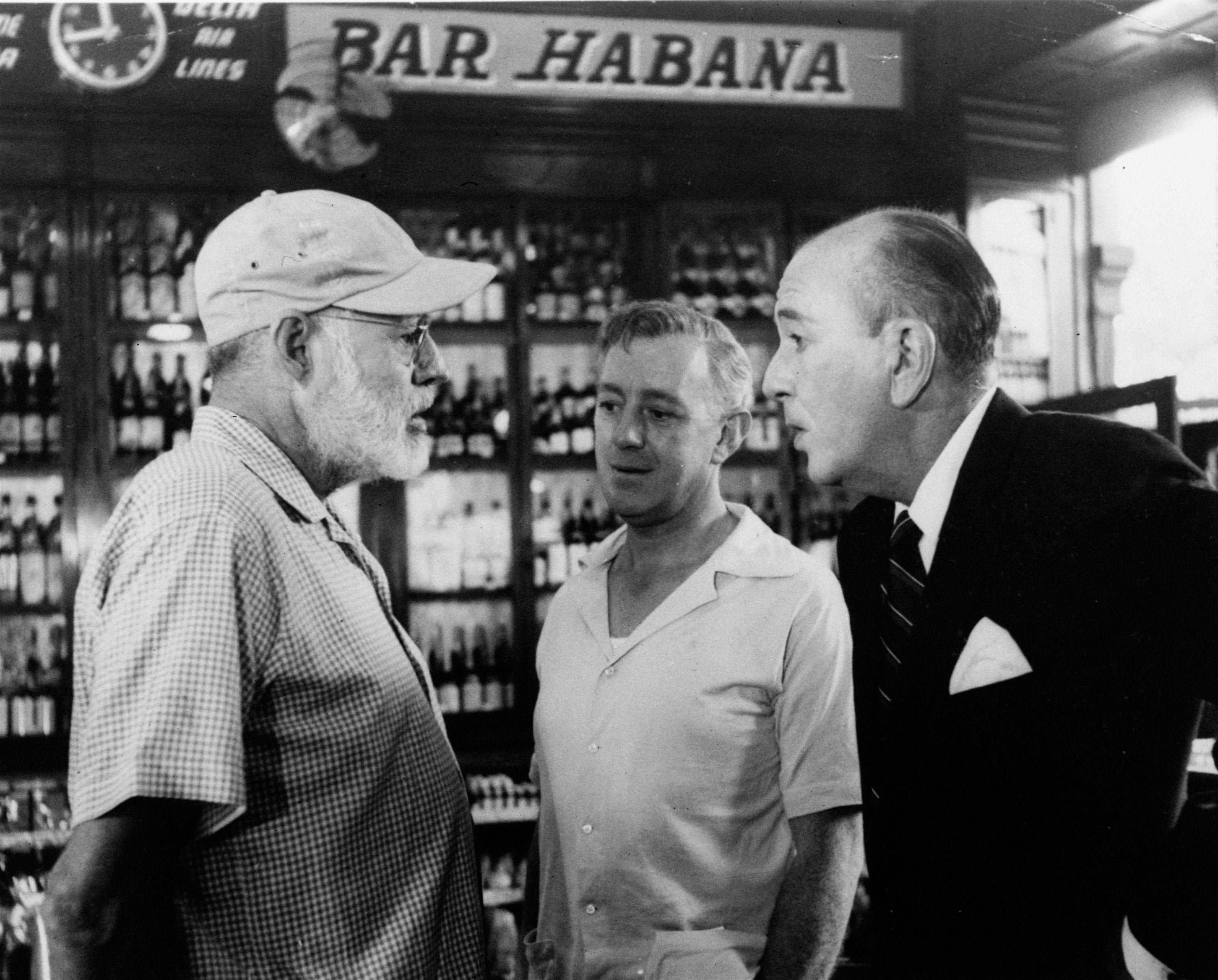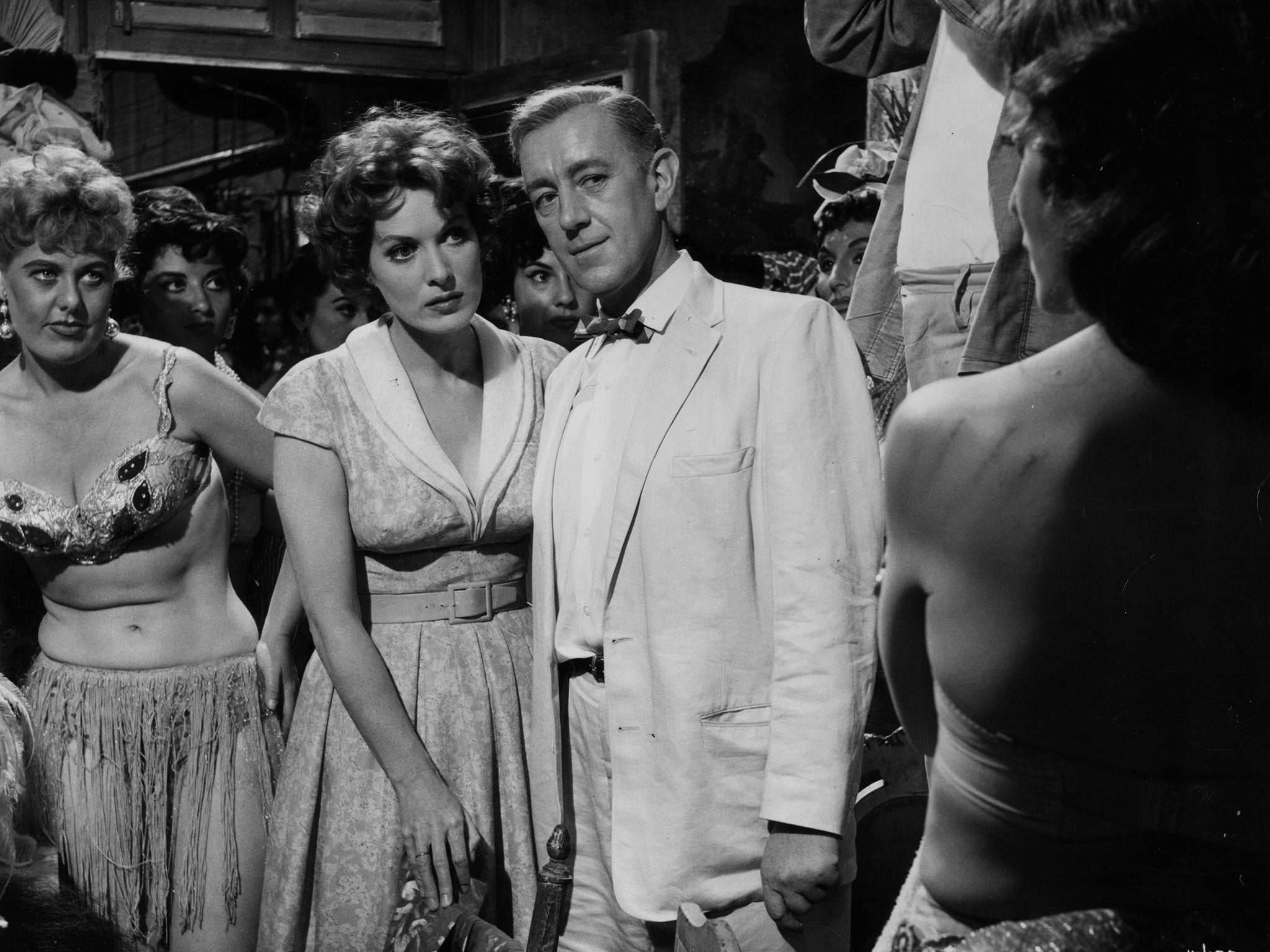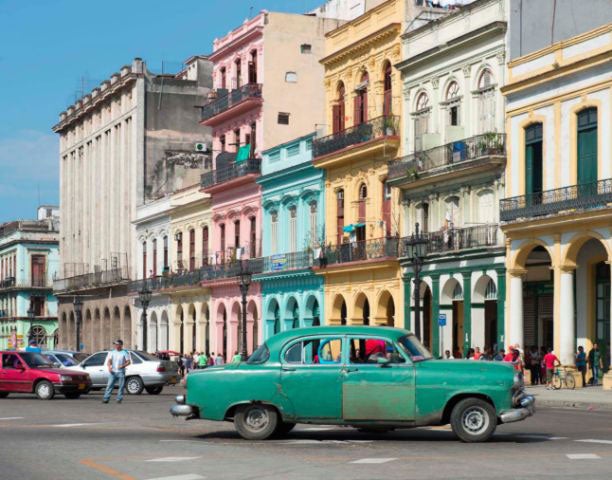Foreign film directors flock to Cuba as isolated island opens up to outside world
Documentaries on Churchill, Graham Greene and Errol Flynn are in the pipeline, writes Geoffrey MacNab

Your support helps us to tell the story
From reproductive rights to climate change to Big Tech, The Independent is on the ground when the story is developing. Whether it's investigating the financials of Elon Musk's pro-Trump PAC or producing our latest documentary, 'The A Word', which shines a light on the American women fighting for reproductive rights, we know how important it is to parse out the facts from the messaging.
At such a critical moment in US history, we need reporters on the ground. Your donation allows us to keep sending journalists to speak to both sides of the story.
The Independent is trusted by Americans across the entire political spectrum. And unlike many other quality news outlets, we choose not to lock Americans out of our reporting and analysis with paywalls. We believe quality journalism should be available to everyone, paid for by those who can afford it.
Your support makes all the difference.As film locations go, Cuba has got pretty much everything: a rich and turbulent history, the faded glamour of its capital Havana and a world-renowned music scene. But all that, until recently, was out of bounds to foreign film-makers.
Now, as the Communist country opens up following the “normalisation” of diplomatic relations between the Caribbean island and its old enemies in the US, foreign film-makers are rushing to take advantage.
But Hollywood will have to wait. Because of the embargo – imposed by the Americans – US actors and technicians are still unable to work in Cuba. However, it will now be easier for documentary film-makers to get around this and a slew of new films are in the making.
Previous films had also been made about Cubans, whereas more are now being made about foreigners who are associated with Cuba such as Graham Greene. Earlier this month, the LA production company Broad Green Pictures said it was preparing a sequel to the music documentary Buena Vista Social Club, to be made by British director Lucy Walker. In Cannes, the London-based film-maker Rosa Bosch has confirmed her plans for four new films to be made in Cuba through her company Cuba Star.
The first, Havana Autos and Architecture, is being produced in collaboration with the architect Norman Foster, based on the book he wrote of the same name with Mauricio Vicent. The film is billed as “a depiction of a country that is emerging from a time capsule after over 50 years of stubborn survival”.

Lord Foster is obsessed with Cuba. “Havana today is like no other place,” he commented. “It’s a theatre in which the stage is the street, the scenery is the facades of the buildings, and the players, who bring the whole drama to life, are the colourful cars and people.”
Cuba is still full of 1950s American cars: Chevrolets, Buicks, Packards, Studebakers, Lincolns, Oldsmobiles, Cadillac convertibles and the like. Their owners have fought to preserve them, in spite of a lack of spare, and to ensure they look as shiny as the day they left the showroom.
“He [Lord Foster] is making a link between the architecture and the cars,” Bosch explains of the feature-doc, which will tell six stories of owners who keep their cars going “forever and ever”. Through the six stories, the aim is to tell the story of Cuba during its “50 years of isolation”. Shooting is expected in the autumn, with an American director expected to be confirmed shortly.
Meanwhile, Bosch is also preparing a new feature doc called Churchill and Cuba, looking at the British political titan’s long engagement with Cuba – and with its cigars. He first visited the country around the time of the Spanish-American independence war of the late 1890s and, much later, wrote his Iron Curtain speech on the island, “while running around in Havana smoking cigars”. Bosch describes the film as being about the “political forming of Churchill”, seen from “a slightly hedonistic, tropical” point of view.

A third Bosch project, yet to be entitled, will explore British novelist Graham Greene’s relationship with Cuba. It will pay particular attention to Greene’s 1958 novel Our Man in Havana and the 1959 film made by Carol Reed and starring Alec Guinness. Fidel Castro himself visited the film set during shooting, only a few weeks after overthrowing the Batista regime.
“The stories of Graham Greene in Cuba will surprise a lot of people. The way he was involved and in a way manipulated by the revolution for certain purposes is fascinating,” Bosch commented.
The fourth of Bosch’s Cuban films is about the hell-raising Hollywood star Errol Flynn’s experiences in Cuba in the twilight of his life, when he was friendly with Castro. He even made his final film there, Cuban Rebel Girls (1959), which he also scripted. Flynn didn’t just come to Cuba to live it up but became, albeit briefly, a fervent supporter of Castro. He is also said to have met Che Guevara – a fascinating and highly unlikely encounter between two very different kinds of icons.
Others are making docs about Hemingway and Cuba. For example, the Starsky & Hutch star David Soul has been involved in Cuban Soul, a film in which he helps the Cubans rebuild Ernest Hemingway’s long-lost 1955 Chrysler New Yorker, which was found recently in a near ruined condition.
“In terms of doing fiction films, we are still legally some way away,” Bosch said, explaining the reason for the current focus on documentary films. “To do a fiction film with US actors is complicated because the money they are paid would be earned [there] and would break the embargo.”
Join our commenting forum
Join thought-provoking conversations, follow other Independent readers and see their replies
Comments